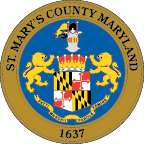Adult Recovery Court
Mission
The mission of the St. Mary's County Adult Recovery Court is to promote public safety and reduce the economic impact of crime in our community by providing a judicially supervised regimen of treatment for the purpose of breaking addiction, thereby eliminating criminal behavior and producing clean, sober, and contributing members of society.
Program Goals & Objectives
- GOAL: To break addiction that has resulted in criminal behavior.
- OBJECTIVE: Assess, identify and refer participants to appropriate community resources. Create a supportive Environment. Provide adequate follow-up and continuing care.
- GOAL: To promote public safety and reduce the economic impact of crime and addiction in our county.
- OBJECTIVES: An average of 50% of graduates to not receive a new criminal conviction for 3 years from graduation.
Recovery Court Team
- Hon. Judge Joseph M. Stanalonis
- Senior Assistant State's Attorney, Lisa Ridge
- Crystal Bradford, Parole and Probation
- William (Bill) Raddatz, Case Manager
- Project Chesapeake, Treatment Provider
- Office of the Public Defender
- Kristie Ardire, St. Mary's County Detention Center
- Capt. Bonnie Payne and Lt. Sherry Harrison, St. Mary's County Detention Center
- Linda Spates, Program Coordinator
Eligibility
- ARC is post (after) Plea or Admission
- Determination of Drug Abuse/Dependency
- Participant must voluntarily enter
- Must be a resident of St. Mary's County
Disqualifying Factors
- Serious mental and or physical health issues (case by case basis)
- Gang member
- Violent Offenders
- Sex Offenders
- Drug Distribution
- Assault or weapons offense unless agreed by unanimous consent of the ARC team.
Program Phases
ARC works on a phase system. The program is broken down into 4 phases. Each phase has a specific set of requirements to successfully complete. After you have completed all 4 phases of the program you are eligible for graduation. In order to move from each phase you must have completed all items and receive approval from the ARC team. Generally you will be required to pay some fees for your treatment and drug testing, including alcohol monitoring. These would be in addition to any fees you are required to pay P &P. You could be held up in a phase due to new charges or fees owed and remain in that phase until charges/fees are resolved.
- Phase I- Minimum of 30 DAYS in the Community
- Phase II- Minimum of 60 Days and successful completion of prior phase
- Phase III- Minimum of 90 days and successful completion of prior phase
- Phase IV- Minimum of 180 days and successful completion of previous phase
Graduation Requirements:
- Successful completion of substance abuse treatment, including all fees paid.
- Continued compliance with any clinician's health care orders.
- Maintenance of housing approved by the ARC team.
- Compliance with all supervision requirements, including a minimum of one contact per week. In this phase, the SARC team may authorize telephone contact in place of face to face, as it deems appropriate. Sanctions may result in increased supervision requirements.
- Compliance with any case management plan from the previous phases.
- Continued regular employment.
- Compliance with judicial supervision; attendance at all hearings scheduled.
- Reporting for and submission to a minimum of 2 drug test per week, or as directed by the ARC, including random testing by your treatment provider (The same rules apply in all phases for testing sites and sample provisions.)
- All fines and fees, including drug court, standard court fees, P & P fees or restitution are either up to date, paid in full, or in amounts approved by the SARC
- Completion of an aftercare plan, to include pro-social activities, relapse prevention and recovery management plan.
- In order to graduate you must have 270 consecutive days of clean time. Part of this amount may carry over from the 90 you had when you complete phase III.
- Attend recovery support meetings as directed by your treatment provider or the team.
Facts
The St. Mary's County Adult Recovery Court (A.R.C.) began operating in 2009. It was modeled after “Drug Courts” operating nationwide (2000+) including in Maryland (44).
What do "Recovery Courts" do?
Recovery Courts create a “team” of professionals (treatment/case management/prosecution/defense/law enforcement) to work together in addressing the changes needed by criminal offenders with substance abuse problems to adopt and maintain an “abstinence” based lifestyle.
What is the difference between “business as usual” and Recovery Court?
Recovery Court is designed to keep qualifying addicted offenders in the community, treat their addiction, and develop a successfully abstinent lifestyle instead of incarceration and recidivism.
Who are the participants?
Persons who have a significant criminal history which is driven by drug and alcohol abuse, or repeat DUI's, who would otherwise be incarcerated for a current conviction or a violation of probation. Persons who have had sexual offenses or convictions for violent crimes are not eligible.
Cost comparison, per person:
- Incarceration - $99-105 per day, $36,135-38,325 per year
- Recovery Court - $19 per day , $7,105 per year
Recidivism:
After Incarceration (without drug court) - 67% rearrested within 3 years (national average) After Recovery/Drug Court graduation- up to 40% rearrested (nationwide) St. Mary's Recovery Court graduation - 20% rearrested within 3 years
Reduction of drug/alcohol abuse:
In a recent 12 month period, the St. Mary's County Recovery Court tested participants more than 6,800 times for drugs and alcohol. The tests covered over 39,000 drugs, including alcohol. The confirmed positives were less than 1%. This is a significant overall reduction in the use of drugs and alcohol. And, for most, it represents a 100% reduction in the use of illicit drugs and alcohol.
What does the program consist of:
A minimum of a year of participation, including regular and frequent testing, treatment, frequent court attendance, Recovery Support meeting attendance, obtaining employment and appropriate housing, and continued abstinence, leading to graduation from the program.
